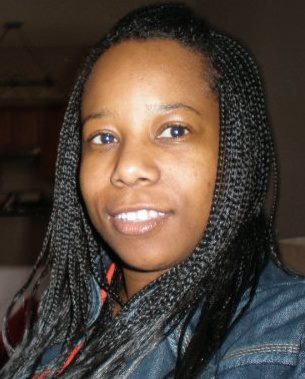 Role: Mentor, Status: In Progress
Role: Mentor, Status: In Progress
It’s nearing 8:30 p.m. on a Thursday. A gorgeous 4-month-old girl with beautiful brown eyes and cocoa skin is monopolizing my time.
“London is 14 pounds now,” Danielle says. “The doctor says she’s thriving.”
Danielle, the real focus of my visit, is London’s mother and my mentee. Before we were matched nearly eight years ago, I was provided four details: She was 15 years old, lived in a group home, had anger management issues and was an avid reader. I’d taught teenagers, supervised a group home, instructed English to kids with anger management issues and loved to read since childhood. As much as a “soul mate mentee” could exist, Danielle was mine. My goals were to spend quality time with her and help her if I could.
Quality time has been everything from an evening at the movies to catching up while helping her move. Help has ranged from finding her a tutor to securing her a place to live. Through a friend, I found her housing after she returned from a semester of college at her dream school that left her saddled with debt. I felt relief but Danielle was crushed. The facility was a transitional group home and for someone who had clawed her way to Spelman through a rotation of high schools and more than 20 housing situations while in foster care, it felt as if her perseverance had been in vain; like it was punishment for completing her first year of college.
As is her way, she stuck it out and then created a better solution for herself. Danielle’s fierce independence has been one of the most rewarding and frustrating aspects of mentoring her. She often felt counted and tracked but rarely valued. At times, I worried if I contributed to this feeling. There is no roadmap to being a good mentor and although we “matched” in key demographics — black, female, born and raised in South L.A. — our 13-year age difference meant we were in very different stages of life. When I endured my own personal upheavals or transitioned into more demanding and time consuming employment, I remained within reach but did a poor job of initiating contact.
In the interim, Danielle kept inching forward. She did things on her own and alternately took my advice and disregarded it. I would vent my frustration at the latter but most of it was reserved for me. Was there something I could be doing that would make her take my more crucial advice seriously?
Somewhere along the way, I stopped making what she did or did not do a reflection of my mentoring and just loved her for who she was and whoever she was becoming. Today, Danielle is juggling her own apartment, re-enrolling as a junior in college and securing new employment. Between motherhood and a budding parental partnership with the child’s father, she has ventured into a life role that is divorced from my firsthand experience. While she has grown and matured as a young woman, I’ve had to improve as a mentor. I was never a replacement for her parents and learned through trial and error that I couldn’t be.
Being a mentor has made me aware that my role in her life has value but also limits. I am not a martyr, a savior or a caretaker to Danielle. I cannot give her what others owe her (a safe and secure childhood), but I can help her better navigate the life she does have. A purposeful mentor understands this, accepts it and reinforces it.
Yet old habits die hard. As I hold her daughter, I have concerns. How will she navigate being a mother? Like anyone else, she’ll use the cherished and terrifying experience of her own childhood to inform but not dictate her parenting. Danielle has been through hell and back, so she is uniquely qualified to protect her daughter from nightmares that most of us couldn’t even conjure up.
Of course there is much more to Danielle’s story, but it is not my job or my right to tell it. A good mentor understands this most of all. I’m not writing her story. I’m just helping with some of the more critical edits.
Leslie Diane Poston lives in Los Angeles and is the Writing Program Director for InsideOUT Writers, which provides creative writing classes in local juvenile halls and re-entry services upon the students' release from detention.
Pingback: OP-ED: Always Learning How to be a Better Mentor | Reclaiming Futures